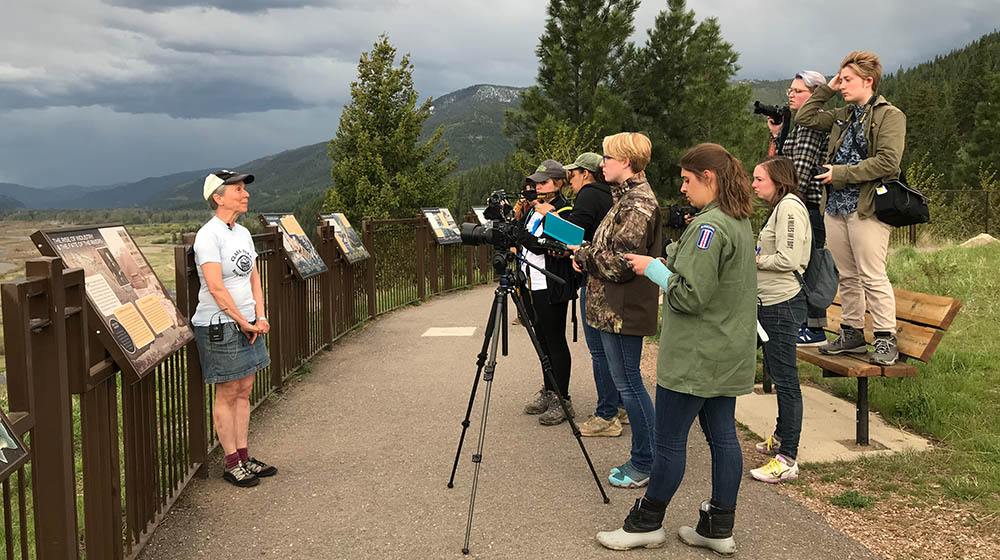Point Park University Students Produce Film About Ongoing Clean-Up of Superfund Site on Upper Clark Fork River Wednesday, March 6, 2019

Point Park University students journeyed to Missoula, Mont., last May to document an ongoing clean-up of the Upper Clark Fork River, the largest Superfund site clean-up in the United States.
The result of that effort is a 17-minute documentary entitled Superfund: Tailing History. Tailing refers to residue or waste materials left over after separating valuable ore, such as copper, from rock.
Superfund: Tailing History
Students interviewed environmental activists, academicians, biologists, Native American tribal leaders and concerned citizens about how this once pristine river was so severely polluted that it became an environmental disaster, negatively impacting public health in the region for decades.
After a massive settlement paid by the polluting companies to the state of Montana for clean-up, stakeholders are now challenged by how best to use the funds to ensure the long-term health and survival of the watershed.
“The students were energetic, creative, and incredibly productive, shooting a documentary film in only a week in the field," said Will McDowell, restoration director for the Clark Fork Coalition, a non-profit organization dedicated to protecting and restoring the Clark Fork River basin.
He added: "The Upper Clark Fork Superfund is a big, complex story. Their ability to transform what they learned here into a compact, coherent and informative film is really impressive.”
Professor Christopher Rolinson, M.F.A., who led the trip, credits the Clark Fork Coalition with helping the students understand what happened to the Clark Fork River basin.
“The individuals our students interviewed for this film took an enormous amount of time and care to explain how this environmental disaster happened and the decades of work it’s taken to try and right the course. Without their cooperation, this film wouldn’t have been possible," Rolinson said.
The trip was funded by the Heinz Endowments which specifically earmarks funds for student travel and is part of the organization’s ongoing support of the environmental journalism program at Point Park. Students participating in the project included:
- Rebecca Lessner, B.A. in photojournalism and M.A. in media communication
- Ashley Murray, B.A. in broadcasting and M.A. in media communication
- Megan Bixler, B.A. in photojournalism
- Adamnh Chelosky, B.A. in multimedia
- Lauren Clouser, B.A. in multimedia
- Gracey Evans, B.A. in photojournalism
- Hannah Lapiska, B.A. in journalism
- Elena Shahen, B.A. in mass communication
- Briana Walton, B.A. in photojournalism
- Derek Watson, B.A. in multimedia
- Morgan Willis, B.S. in biological sciences
- Zach Shahen, B.A. in mass communication
The film is featured on environmental-report.org, a website created by Point Park students specifically for environmental projects and initiatives, and will be entered into the Stories of Our Watershed Film Festival in Portland, Ore.

